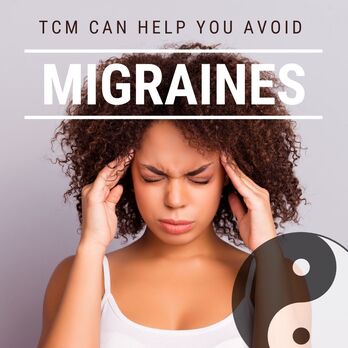 Migraine triggers don’t necessarily cause a migraine; they are simply factors that increase the likelihood of getting a migraine. Triggers play a role in activating the process that leads to a migraine. Not every trigger causes a migraine for every person, even if a person is sensitive to a particular trigger. But how much do you really know about controlling your migraines? New research suggests you not know as much as you think. According to Timothy T. Houle, Ph.D. and co-author Dana P. Turner, M.S.P.H., both of the Wake Forest Baptist anesthesiology department, migraine sufferers make inaccurate conclusions about what triggers their migraines. Houle and Turner conducted a 3-month study of 9 women who suffered from migraines. They tracked the women’s hormone levels, stress levels, and the weather. The women kept daily diaries. At the end of the study, the scientists could not accurately predict which triggers would cause a migraine. Their conclusion—most people can’t isolate the many complex variables in everyday life to accurately determine their migraine triggers. That means triggers are complex and situational. So what can you do? Pay attention to your own habits and migraines. While researchers may disagree about the accuracy of pinpointing migraine triggers, it’s important to remember that you know your body better than anyone. Living with migraines for years gives you deeper insight to what brings on migraines for you—if you observe them. If you find a correlation between a trigger and your migraines, trust it! Part of the difficulty of identifying triggers is that some triggers may be active only under certain circumstances and involve layers of complexity. For example, you may be able to eat cheese or drink wine sometimes with no negative consequences, but consuming these things late at night or during a stressful time might contribute to a migraine. Many people are more susceptible to migraine when multiple triggers are present at once. As your care providers, it’s important to always support your own knowledge of your body and your migraines. You know your triggers and I respect your intuition. Common Migraine Triggers Hormone Fluctuations Hormone changes can trigger migraines. Sometimes birth control pills increase migraines (while sometimes pregnancy prevents them). Monthly hormonal cycles can contribute in big ways to triggering migraines. Food and Nutrition What you eat and drink contributes a lot to your sensitivity to developing migraines. Typical food triggers include aged cheeses, processed meats, yeast breads, peanuts, legumes, caffeine, alcohol (especially red wine), chocolate, vinegar, fermented foods, tannin-heavy fruits (like citrus, raisins, red plums, etc.), and many more. In addition, some people are sensitive to sulfates, nitrates, nitrites, food coloring, and other food additives. Lifestyle and Habits Many triggers have to do with your daily habits, lifestyle, and environment. Stress can be a major factor that contributes to migraine development. No surprise there! Other triggers can be fatigue, lack of sleep, over-sleeping too much, missing meals, changes in barometric pressure, or certain light hues or brightness. Strong smells such as paint, gasoline, or heavy perfumes can also be triggers. Buying an air filter for your home can be a game-changer for your migraine management. While genetics don’t “trigger” a migraine, they play a role in how likely you are to suffer from migraines in general. Quick tips for migraine management:
Acupuncture has proven to be a very effective treatment for balancing the constitution thereby reducing sensitivity to triggers. Acupuncture is a safe, natural, and minimally invasive way to take control of your health. Don’t wait, let’s schedule your appointment today! |
AuthorsRebecca M H Kitzerow is a Licensed Acupuncturist practicing in La Center, Washington. With over a decade of experience she has won 10 Nattie consumer choice awards from Natural Awakenings Magazine since 2014. Archives
July 2024
Categories
All
|
Photos from Hey Paul Studios, BeGreen_Studio, Pawel Pacholec, 1950sUnlimited, toulupaliaqaz, Joelk75, OnTask, Robert Gourley, cnu_sports, Mitya Ku, wuestenigel (CC BY 2.0), FootMassagez, 401(K) 2013, Mariana Heinz, @EdwardTerry, fishhawk, liverpoolhls, torbakhopper, Boemski, dolomitibl, Driscolltheque, Dave n Laura, Vaping360, MVWorks, Life Mental Health, MVWorks, mikefats, Scot Nelson, jfl1066, wZa HK, ruurmo, Guadalupe Cervilla, Army Medicine, GViciano, torbakhopper, adrigu, Saulo Cruz, Ben Cumming, marniejoyce, kcxd, JasonCorey, kanenas.net, Live to Create Photography, gm.esthermax, Unique Hotels Group, Zenspa1, mysiana, Tobias Lindman, Leader Nancy Pelosi, Kristoffer Trolle, swanksalot, Bill Selak, Parker Knight, stimpsonjake, Gedankensprudler, SuperFantastic, tonynetone, marniejoyce, JeepersMedia, Illusive Photography, 'Ajnagraphy', Iban Torras, scotted400, gtall1, dvanzuijlekom, BPPrice, Skley, torbakhopper, Renato Ganoza, anka.albrecht, QUOI Media, Public Domain Photos, Instant Vantage, Victor Tongdee, Free Grunge Textures - www.freestock.ca, sportEX journals, Nadja Tatar, angela n., marniejoyce, MVWorks, Karolina Kabat, Thomas Fisher Rare Book Library, UofT, ginnerobot, tracilawson, haven't the slightest, My Photo Journeys, Pierre Willemin, Florena_Presse, SuperFantastic, colindunn, zzkt, TraumaAndDissociation, ER24 EMS (Pty) Ltd., shixart1985 (CC BY 2.0), marniejoyce, Tomás Fano, freestock.ca ♡ dare to share beauty, Archives New Zealand, Jaykhuang, airdrie.m, Go-tea 郭天, OnTask, wuestenigel, focusonmore.com, Disney | ABC Television Group, Andrew Gustar, Didriks, ConstructionDealMkting, charlywkarl, barnimages.com, Lel4nd, runwaypilates, michaelstephanfotografie, McLevn, TraumaAndDissociation, eLife - the journal, Lars Plougmann, wuestenigel, shixart1985, boviate, davis.steve32, kevin dooley, @the.photoguy (insta), frederic.gombert, Feathering the Nest, Victor Tondee, shixart1985, wuestenigel, Joe K Gage, kennethkonica
 RSS Feed
RSS Feed
